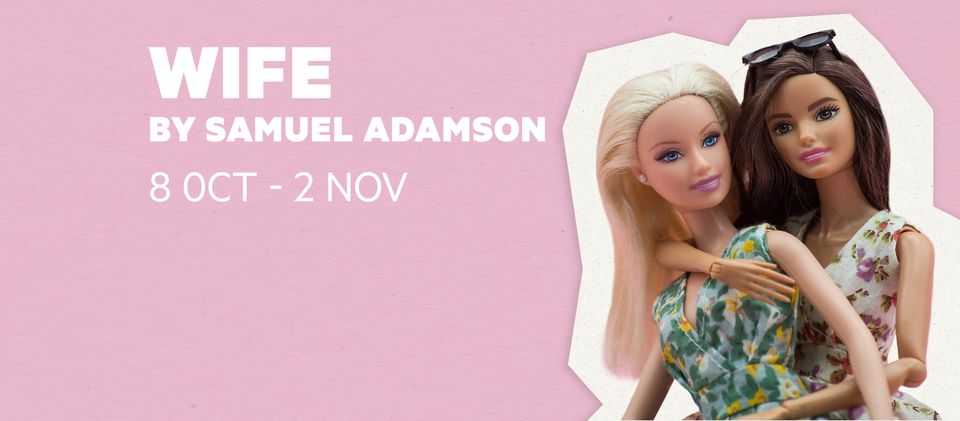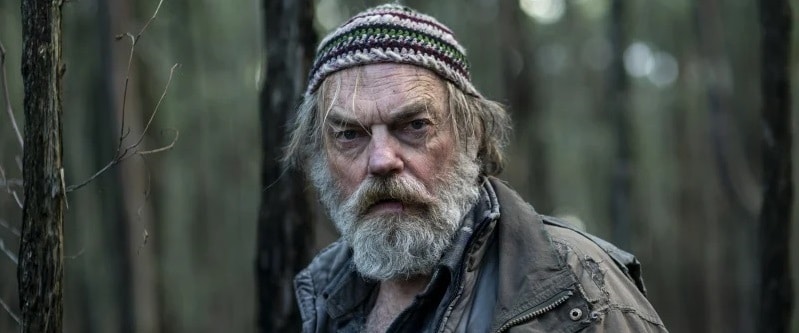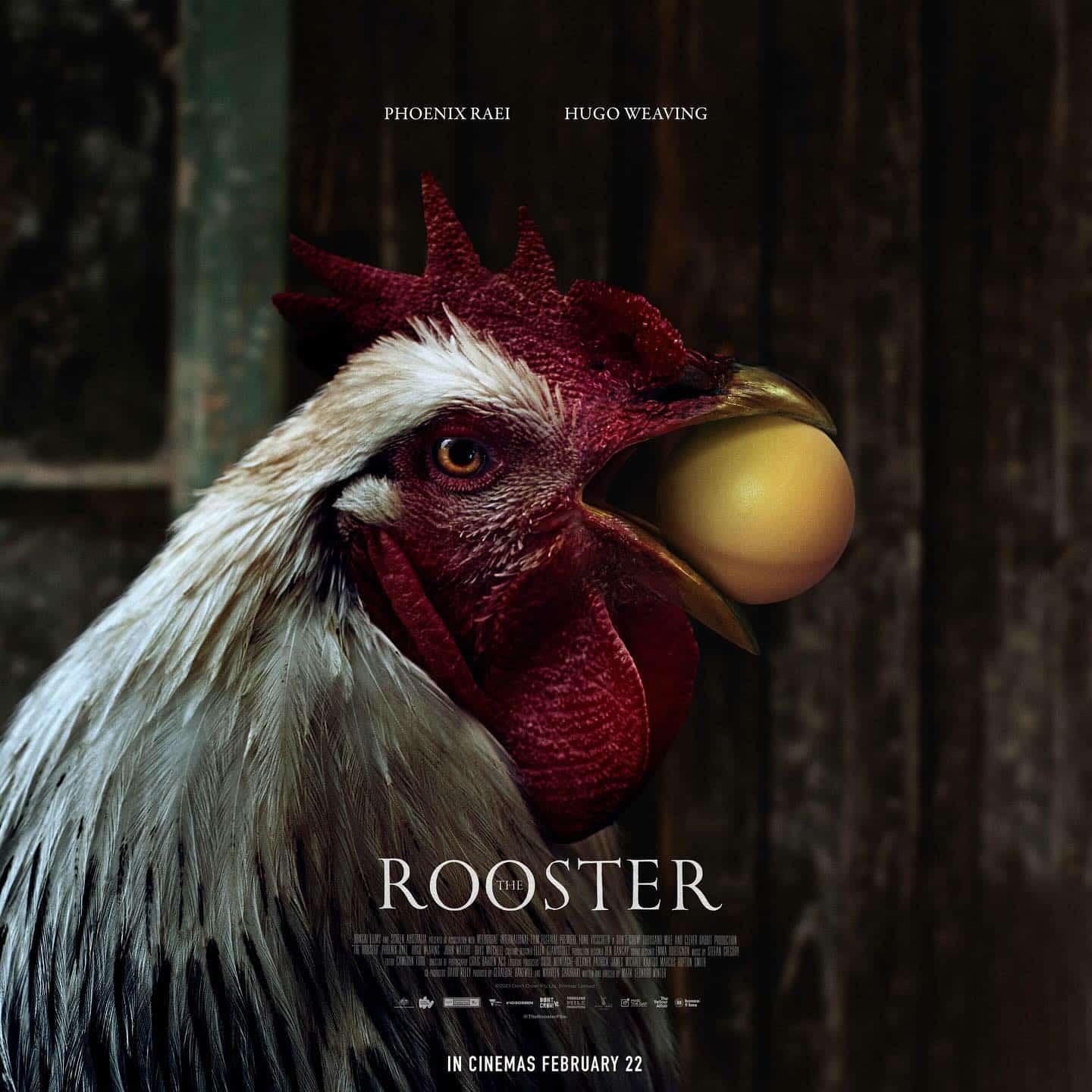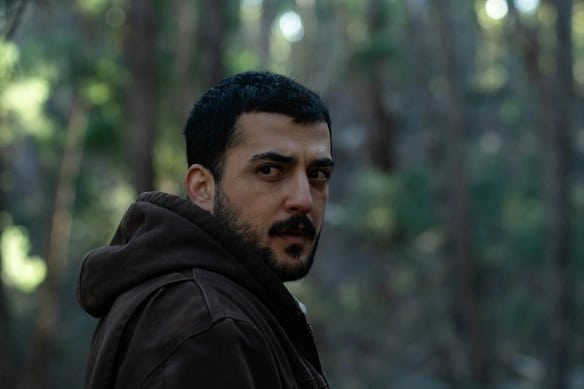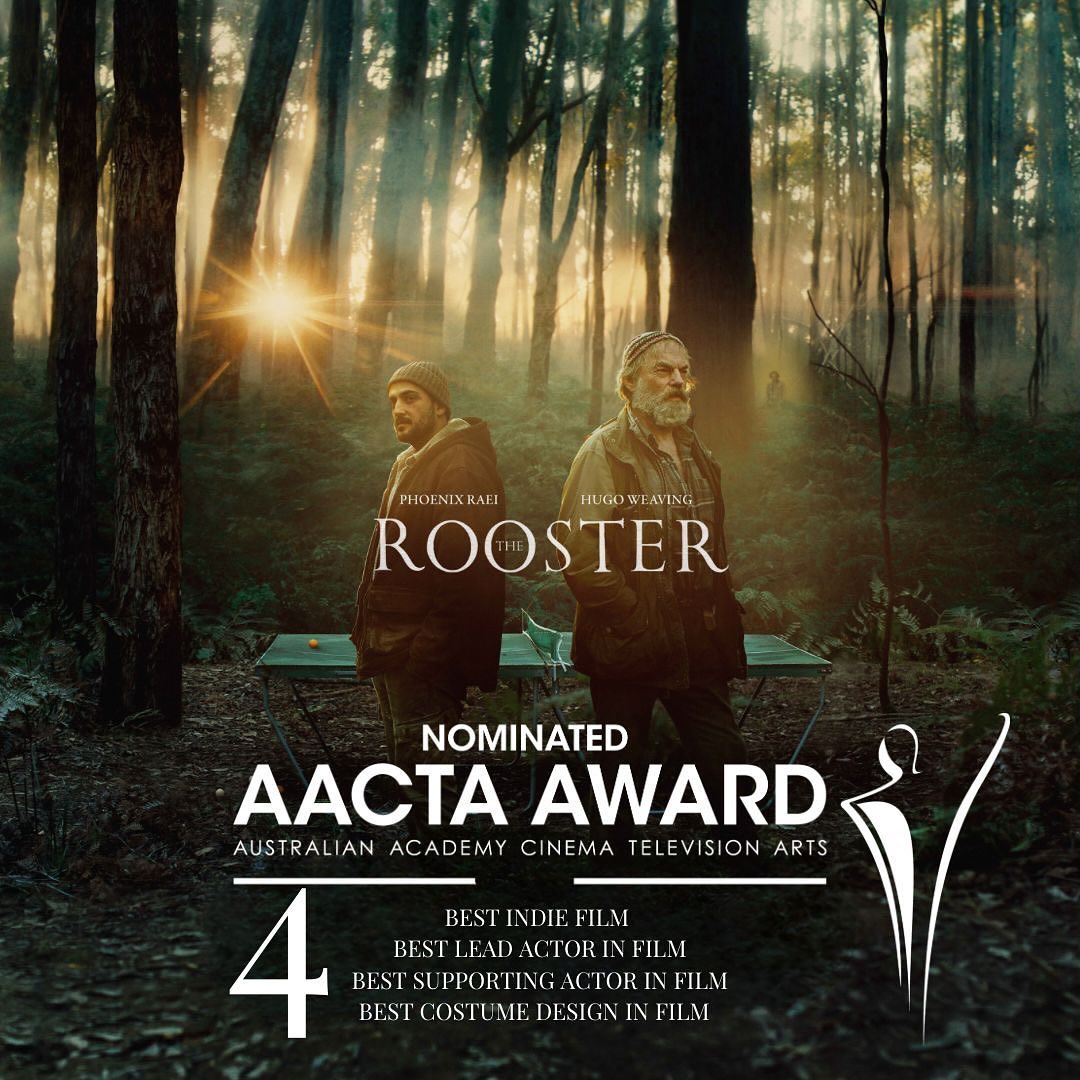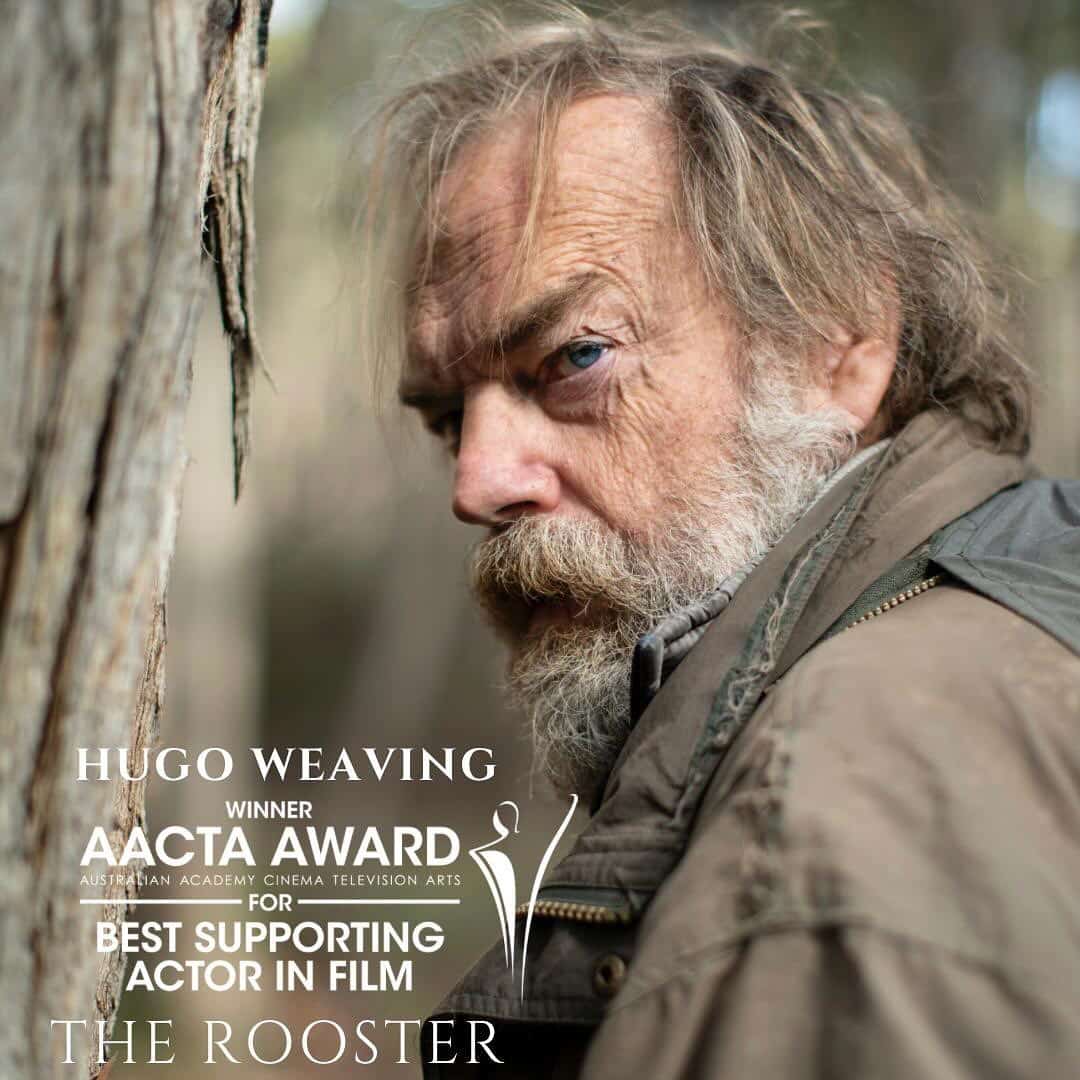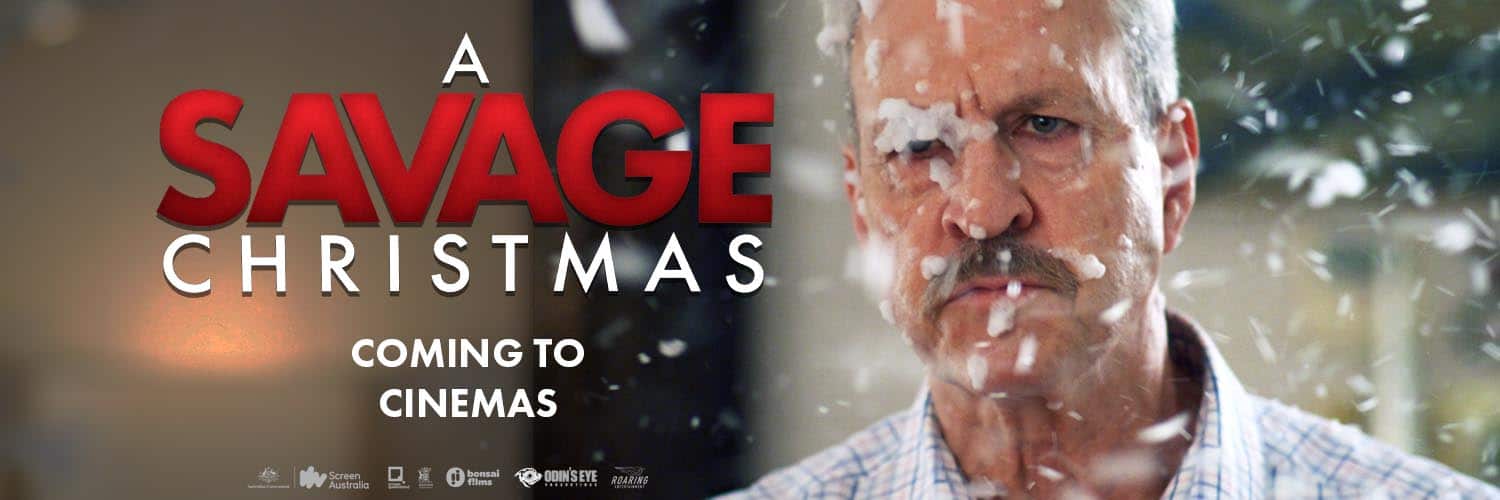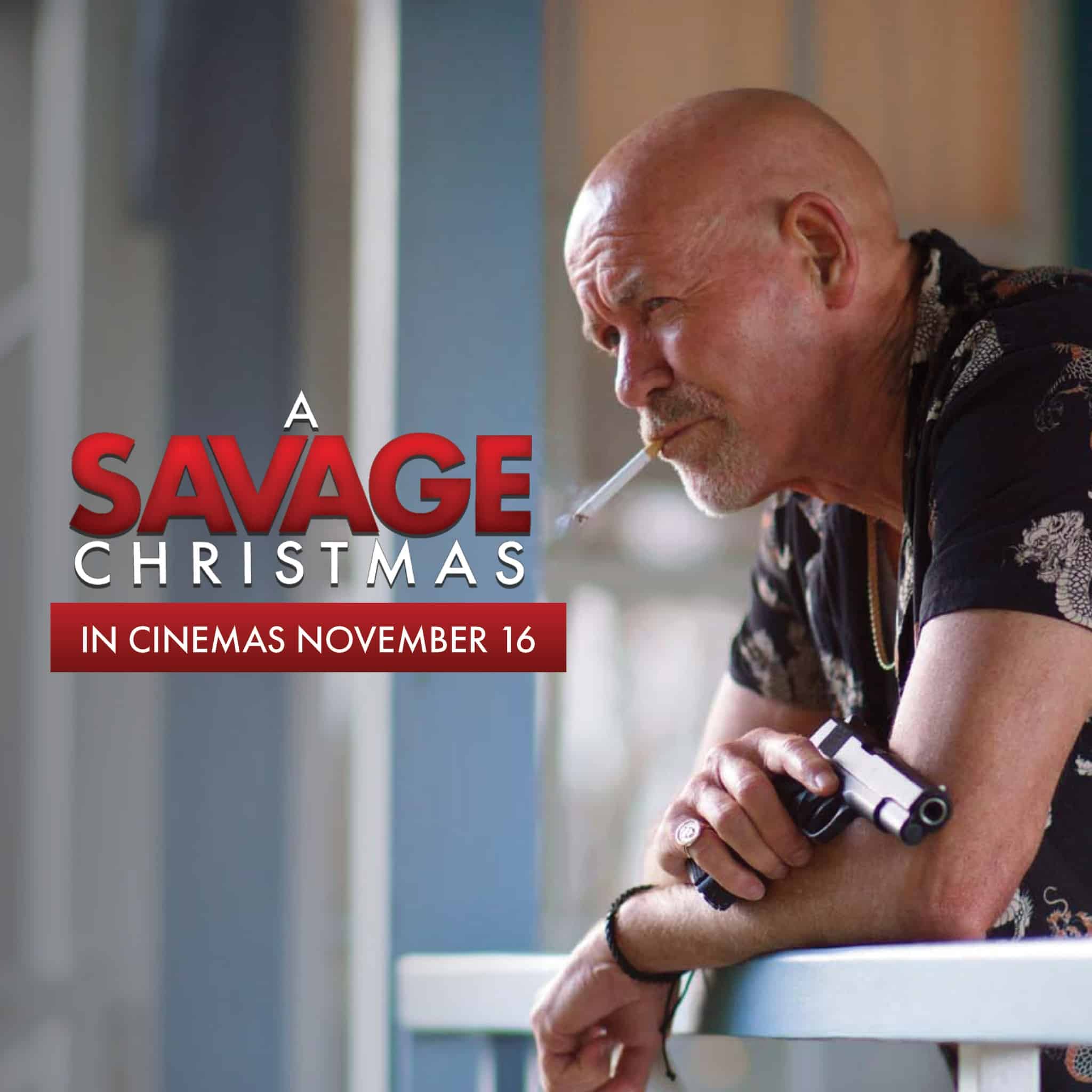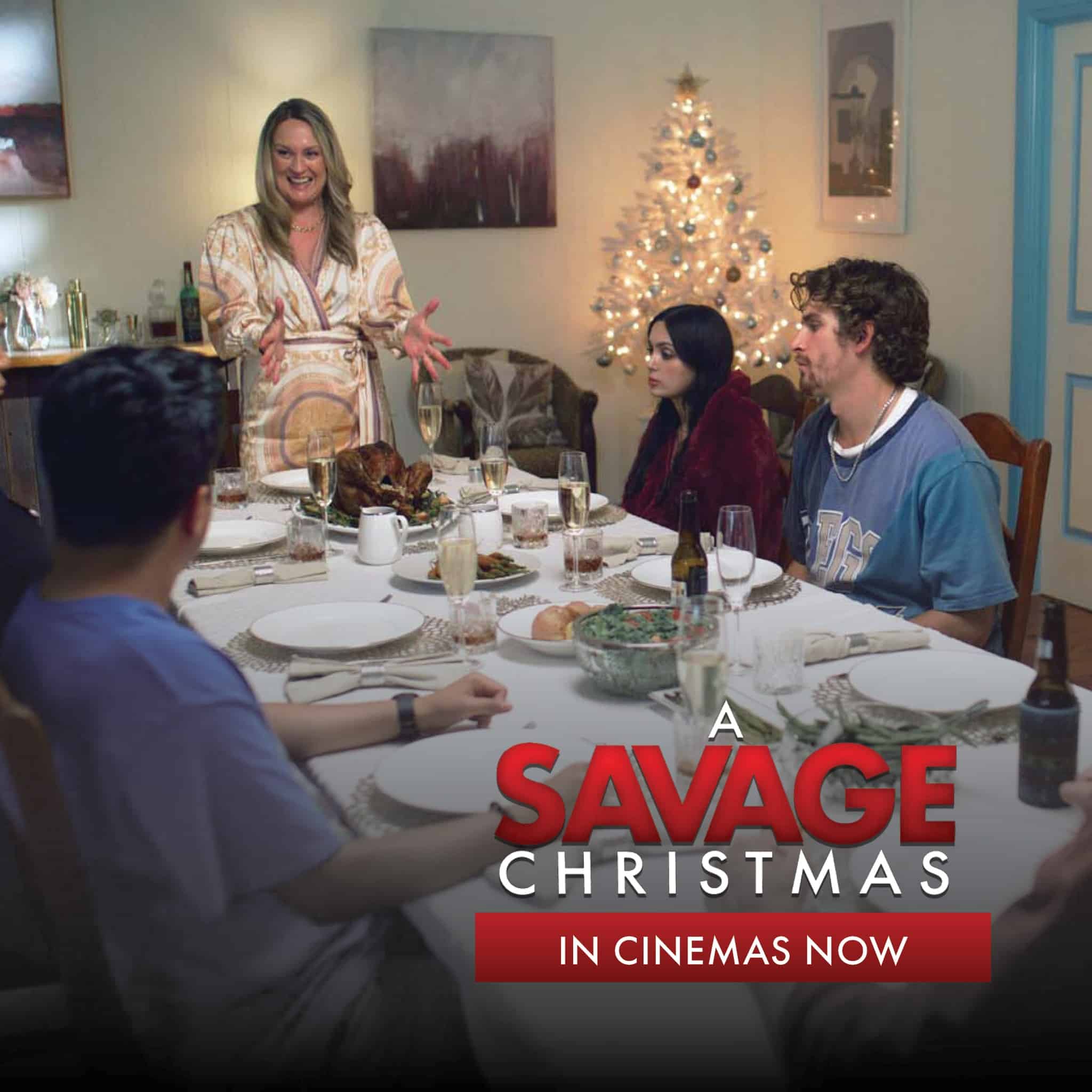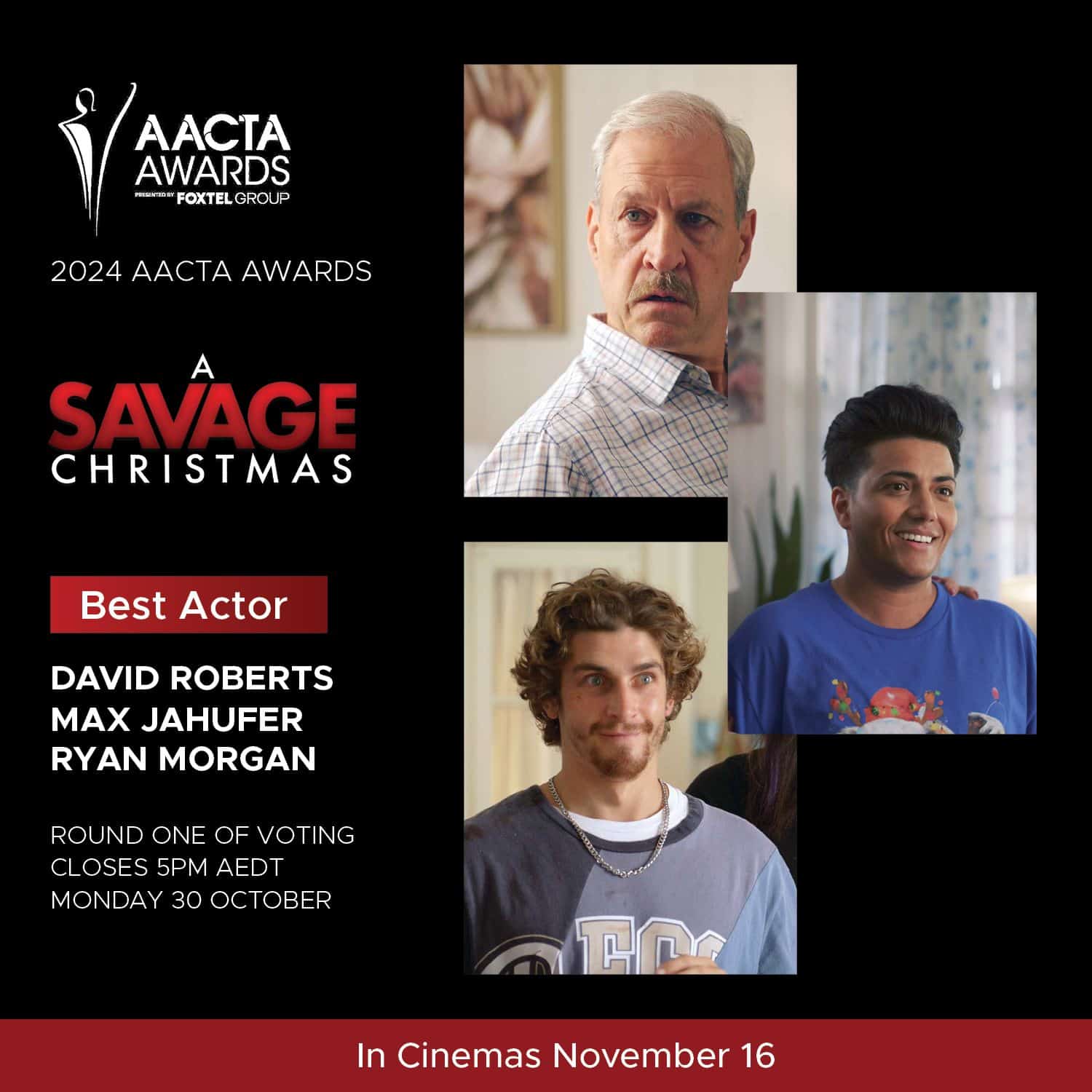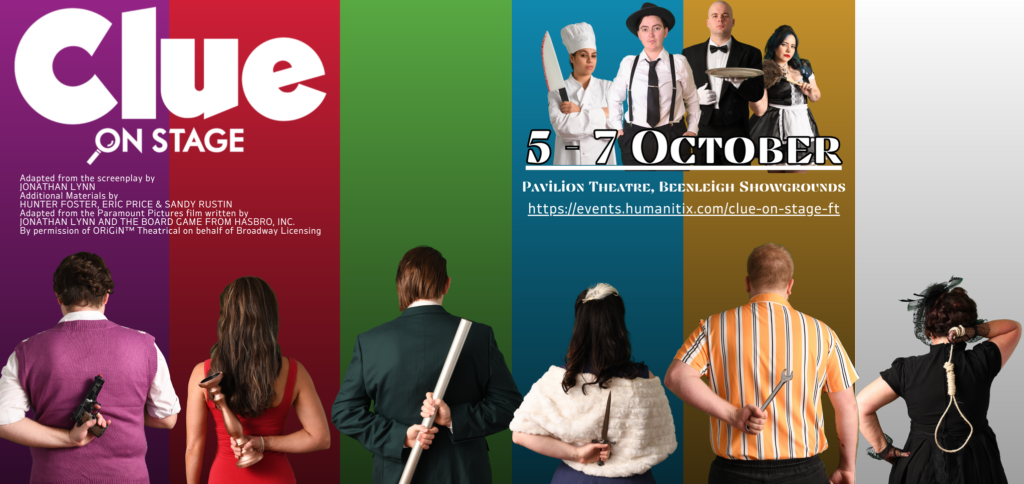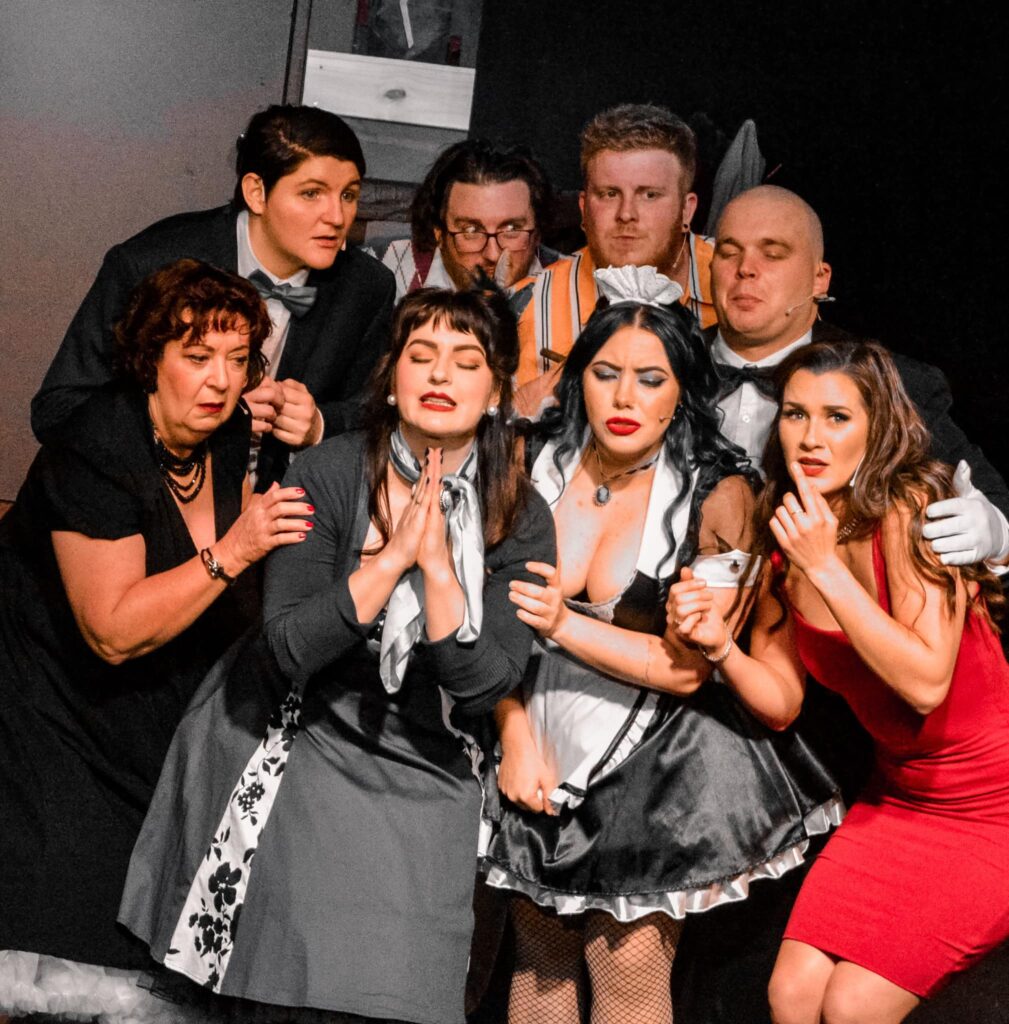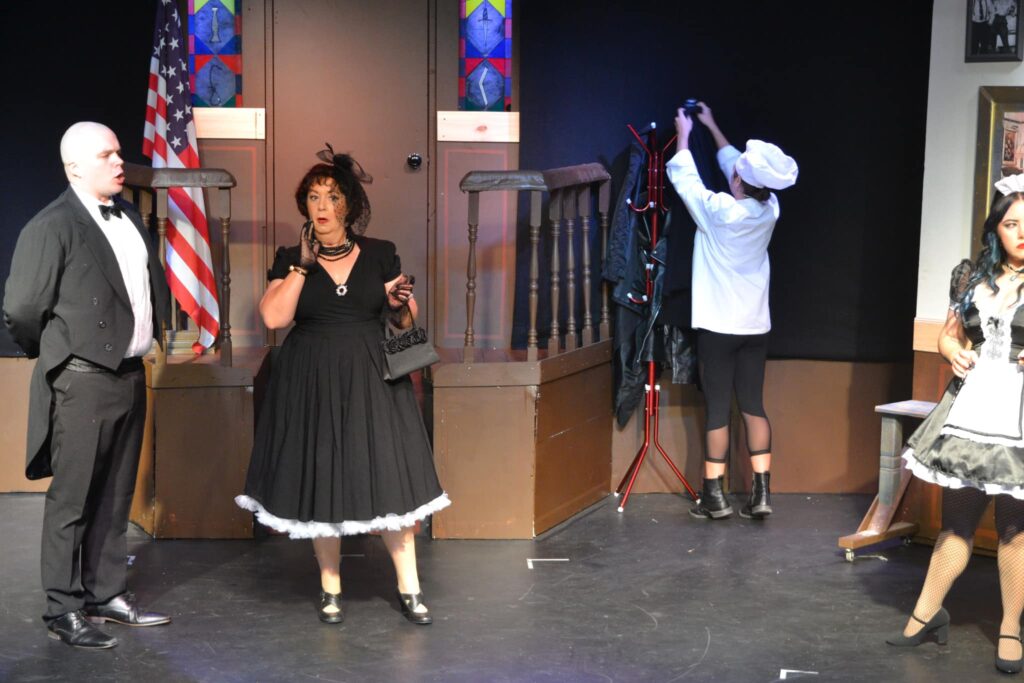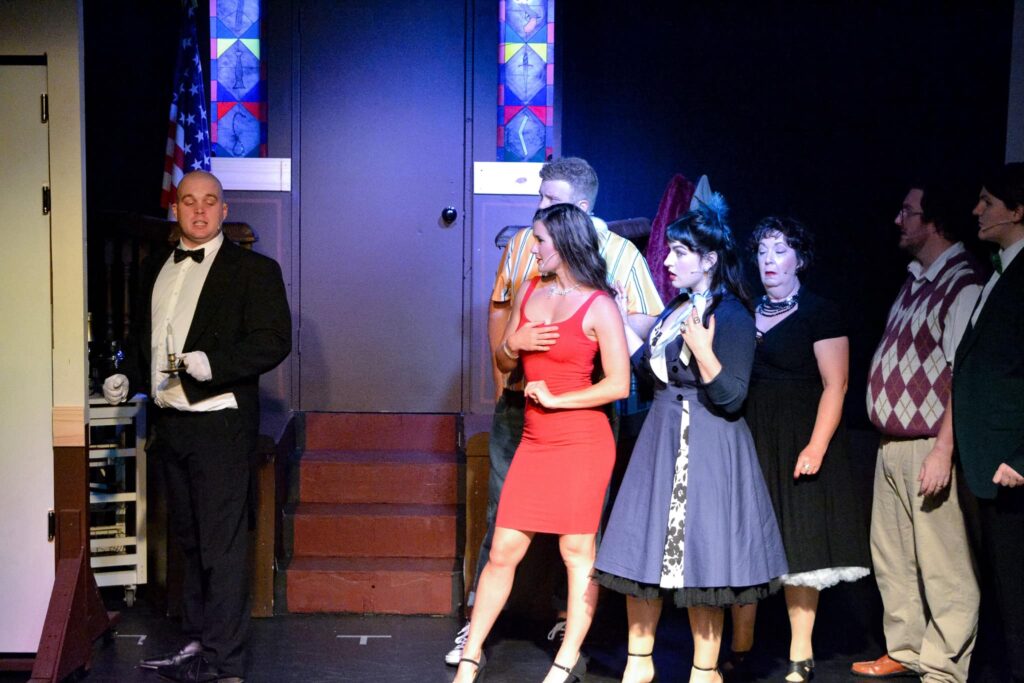What is the meaning of the word Wife? Australian playwright, Samuel Adamson’s script, explores gender roles and expectations of marriage through four-time chapters and three generations, taking us back to our past and into the future.
New Theatre’s production of Wife begins in 1959, with a fraught dialogue between a husband and wife behind the closed door of a house. We are eavesdroppers at the disintegration of a traditional marriage. We learn that this is a play within a play – the closing act of A Doll’s House, written by Henrik Ibsen and first published and set in 1879. Nora makes the decision to leave her husband and three children in search of freedom – and it is this ‘unthinkable act’ of a woman where the audience first gets to explore the role of a wife.
Daisy, portrayed by Imogen Trevillion, and her husband go backstage and meet with Suzannah, played by Julia Vosnakis. It is here that Robert, portrayed with scathing disdain by Will Manton, lets loose his opinion on what a dreadful woman Nora was for leaving her family. His demands on his wife and the way he speaks to her echoes the male chauvinistic attitudes that were the norm in marriages. Have expectations changed in 80 years from 1879? It seems not, in 1959.
When Robert leaves, we see that Daisy and Suzannah are secret lovers. Daisy, similarly to Ibsen’s character Nora, have followed society’s expectations at the expense of personal truths, and in Daisy’s case, her sexual identity. Daisy, who is pregnant, is at crossroads and her decision flows on to the next generations.
In the second chapter, set in 1988, two characters sit at a bar following the performance of A Doll’s House. Daisy’s son Ivar (Will Manton) is proudly, and loudly openly gay, and Eric, played by Henry Lopez Lopez, is more in the closet than Ivar. This is a scene where the intensity of the actors’ performances impressed me. One line particularly, which Ivar throws at Eric that he was so “deep in the closet you’re in Narnia!” was well appreciated by the audience. It was interesting to see that Ivar appeared to be quite the bully to his partner Eric, and I drew parallels between Ivar and his father Robert. Relationship inequities still exist, in both heterosexual and homosexual relationships.
Society had changed by 1988, and people were free to be themselves in public. But even so, they were still being treated with open hostility and discriminated against by the pub landowner, played by Pete Walters.
In 2019, a couple – Clare (Imogen Trevillion) who is Eric’s daughter, and her fiancé Finn (Will Manton) meet after seeing a production of A Doll’s House, where Cas (Henry Lopez Lopez) plays the lead in a gender flip version of Nora. Cas’ partner, who he calls his wife, is Ivor (now played by Pete Walters). Henry’s Cas is flamboyantly camp, and makes the audience laugh with his toast, “Come in your eye!”. The dialogue and interaction between him and Clare is wickedly sharp when talking about evolving – “the world is still made out of prison cells”.
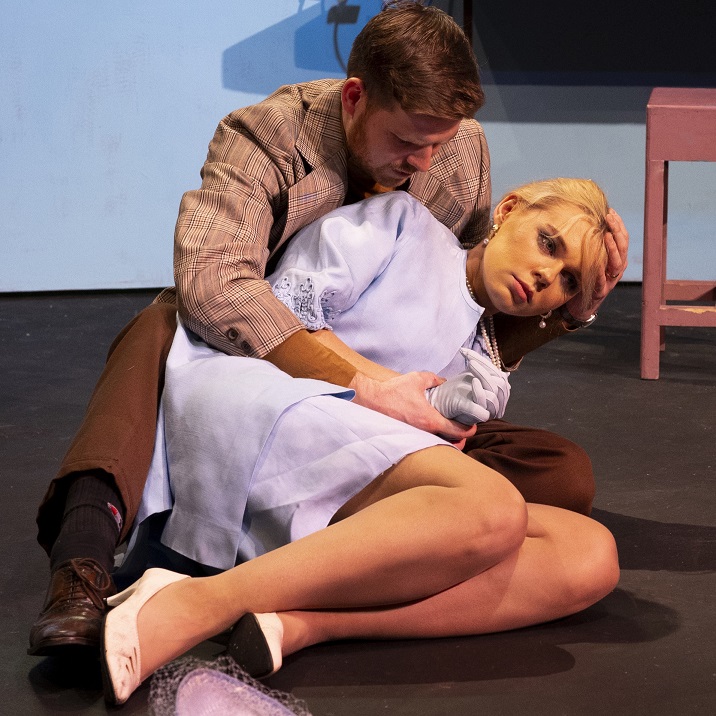
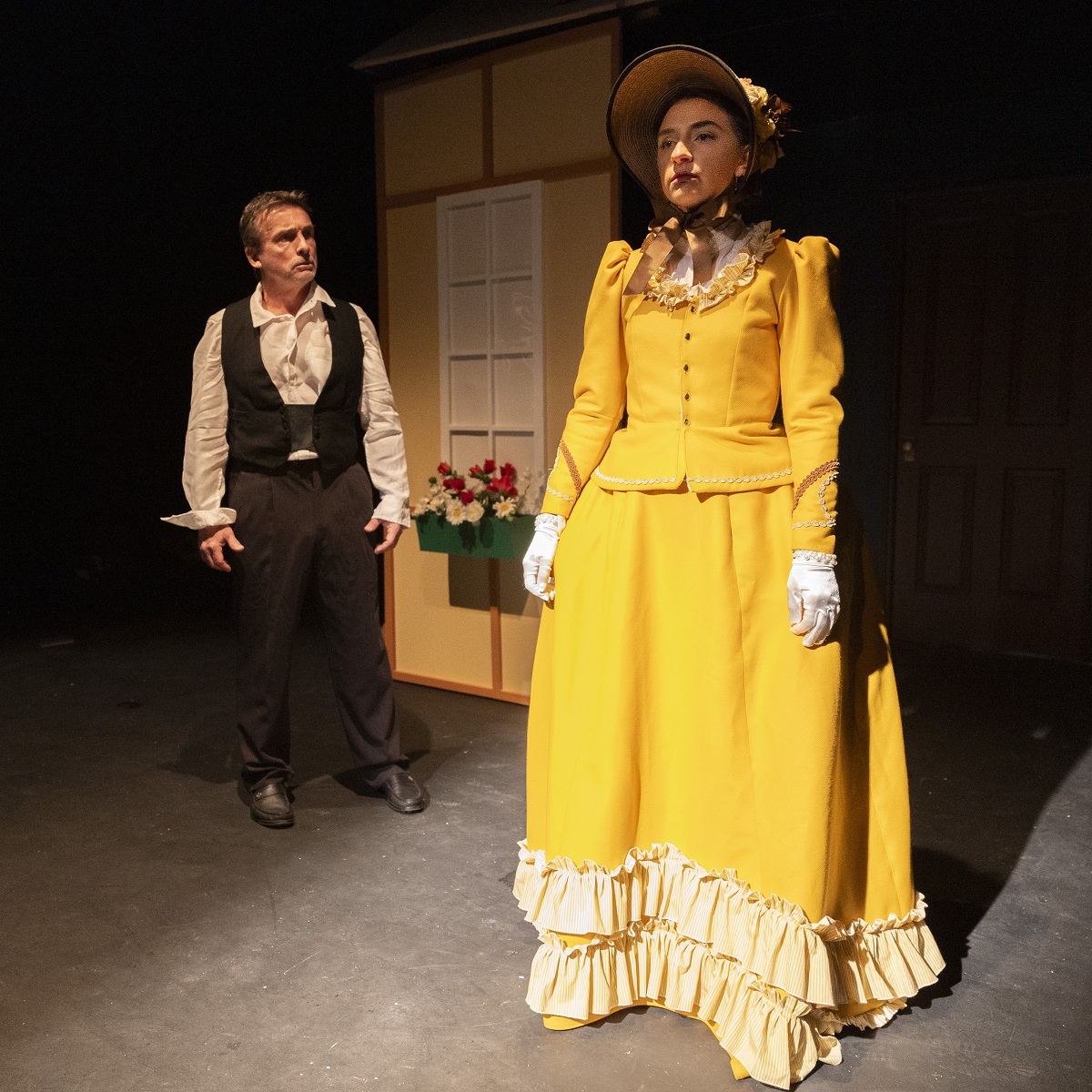
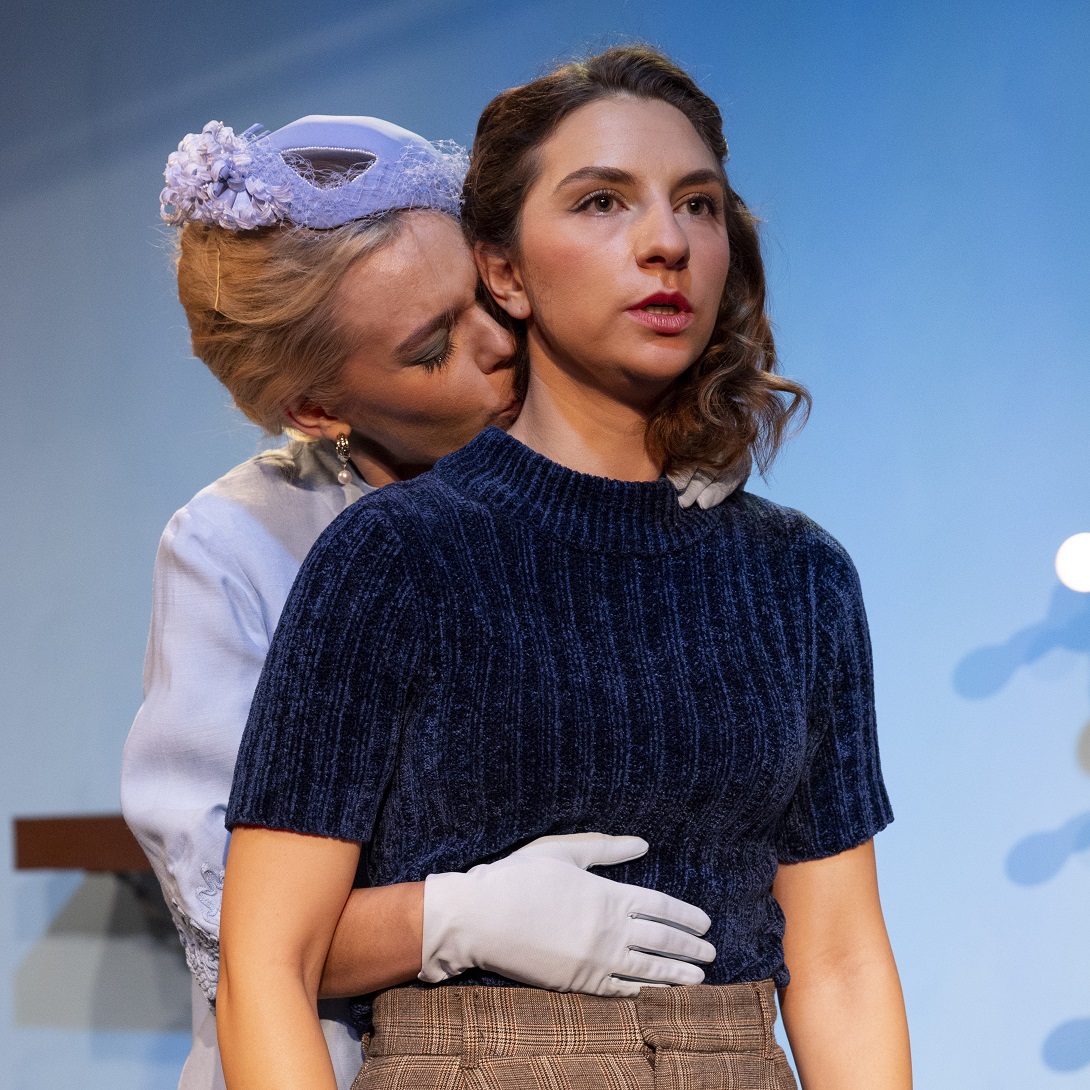
Clare, desperate to know more about her father, has been searching and desperately wants to know more about him, via the man her father truely loved and called a “Firebrand”. Here we delve into middle-aged Ivar, who we last saw at the bar in 1988; a man who was once passionate about gay rights who fought against homosexual discrimination, and is now complacent. Cas now appears to be the leading partner. We hear from Clare how Eric changed throughout the years since we had last seen him, no longer in the closet but fighting against discrimination.
The last act takes place in 2042, where Clare’s daughter Daisy (Imogen Trevillion) goes backstage to see Susannah (Julia Vosnakis), after a performance of Ibsen’s play. Keep a look out for the significance of the tambourine!
Aibhlinn and Burley Stoke’s costume design placed the characters well into multiple time periods. Dr David Marshall-Martin’s set design of The Dollhouse morphed well into the dressing room and pub scenes. The use of a flower trellis in the final scene was effective in it’s simplicity and I felt was a nod to Daisy.
Wife is a deliciously layered play with many characters through the timelines, and the actors portraying multiple characters did so with visual authenticity. They were quick with the dialogue, with Will, Imogen and Peter slipping into their multiple three characters with ease.
The connections between family, if a tad confusing during the first act, become clear in the second act, with the links and characters continuing to tie the story together. The complexity and depth of the story made me want to keep going back to ponder this play after it had finished.
Wife was directed by Darrin Redgate (Boyslikeme Productions) who skilfully pulled together this play to create a thought provoking production with a deep exploration into equality in marriage, gender roles, and societal expectations. Darrin’s vision of Wife and the cast and creative team will have the audience questioning the role of a wife, queer rights and how change can happen over a lifetime.
Wife is playing at the New Theatre, 542 King St, Newtown.
Show Run: Wed 8 Oct – 2 Nov 2024
Tickets: from $32- $37
Running Time: 2 hours 25 minutes (including interval)
Photographer: Bob Seary
